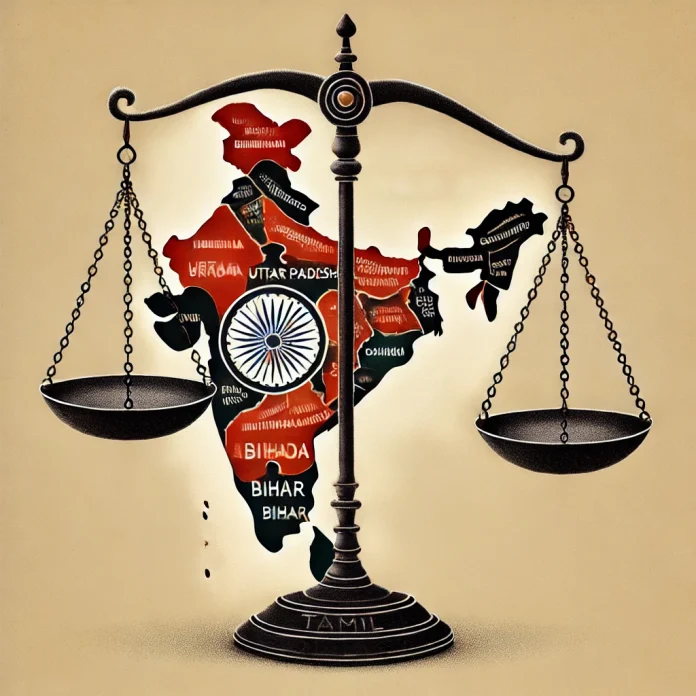What is Delimitation?
Delimitation refers to the process of redrawing the boundaries of parliamentary and state assembly constituencies based on population data. It ensures fair representation and is conducted by the Delimitation Commission, typically after every Census. The goal is to balance voter distribution across constituencies.
Key Issues with Delimitation:
- Population-Based Seat Allocation: States with higher population growth may get more parliamentary seats, while those that controlled their population may lose representation.
- Political Imbalance: Northern states, where population growth is higher, might gain more seats, shifting political power away from southern states.
- Development vs. Representation: States like Tamil Nadu argue that their efforts in population control should not result in reduced political influence.
- Federal Structure Concerns: Unequal seat distribution could create regional imbalances, affecting federal decision-making.
Why is Tamil Nadu Protesting?
Tamil Nadu and other southern states have successfully implemented family planning programs, leading to lower population growth. Under delimitation, states with lower growth might see their Lok Sabha and assembly seats reduced, while northern states with higher populations (like Uttar Pradesh and Bihar) could gain more seats. Tamil Nadu views this as unfair, as it penalizes development efforts and shifts political power disproportionately.
The state demands a more balanced approach that considers factors beyond just population, such as economic contribution, governance efficiency, and development indicators.









